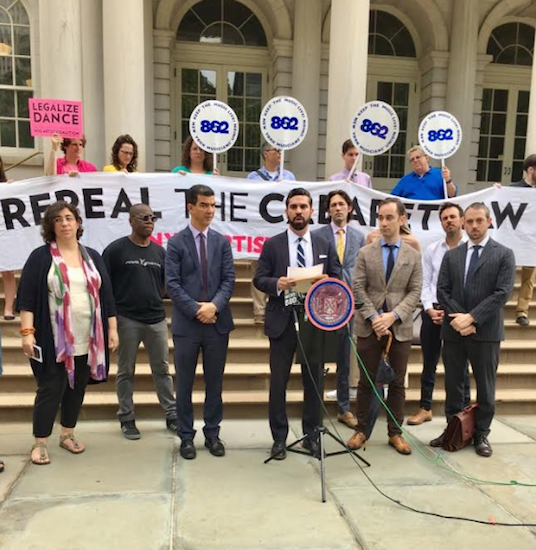It’s time to dump ‘racist’ law banning dancing, says Espinal

If New York wants to retain its title as The City That Never Sleeps, then several sweeping changes need to be made, according to city Councilmember Rafael Espinal.
Hundreds of nightlife advocates, business owners and artists joined Espinal at a Consumer Affairs Committee hearing on Monday to voice their opposition to an antiquated and draconian rule known as the “Cabaret Law.”
The Cabaret Law states that people can only dance in venues that possess a cabaret license, but these certificates are extremely difficult to obtain.

Brooklyn Boro
View MoreNew York City’s most populous borough, Brooklyn, is home to nearly 2.6 million residents. If Brooklyn were an independent city it would be the fourth largest city in the United States. While Brooklyn has become the epitome of ‘cool and hip’ in recent years, for those that were born here, raised families here and improved communities over the years, Brooklyn has never been ‘uncool’.